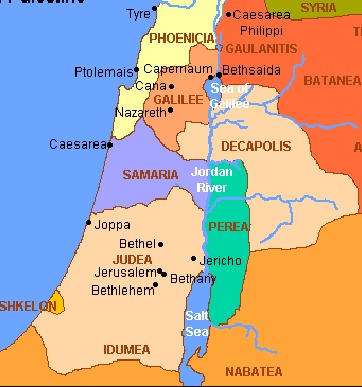
Kissimmee Homeschooling


Samaritans
The Isrealite Samaritan
Samaritans
The Samaritans (Samaritan Hebrew: Samerim "Guardians/Keepers/Watchers of the Law/Torah" ) are an ethnoreligious group of the Levant, descended from ancient Semitic inhabitants of the region. The Samaritans are adherents of Samaritanism, an Abrahamic religion closely related to Judaism. Samaritans believe that their worship, which is based on the Samaritan Pentateuch, is the true religion of the ancient Israelites from before the Babylonian Exile, preserved by those who remained in the Land of Israel, as opposed to Judaism, which they see as a related but altered and amended religion, brought back by those returning from the Babylonian exile.
Richard Hooker defined "theology" in English as "the science of things divine". The term can, however, be used for a variety of different disciplines or fields of study. Theologians use various forms of analysis and argument (philosophical, ethnographic, historical, spiritual and others) to helpunderstand, explain, test, critique, defend or promote any of myriad religious topics.
Ancestrally, Samaritans claim descent from the Israelite tribes of Ephraim and Manasseh (two sons of Joseph) as well as from the priestly tribe of Levi, who have links to ancient Samaria from the period of their entry into the land of Canaan, while some suggest that it was from the beginning of the Babylonian Exile up to the Samaritan polity of Baba Rabba. Samaritans used to include a line of Benjamin tribe, but it went extinct during the decline period of the Samaritan demographics. The split between them and the Judeans began during the time of Eli the priest when, according to Samaritan tradition, Judeans split off from the central Israelite tradition.
Japheth son of the Biblical Patriarch Noah
Also Diphath. Literal meanings are opened, enlarged, fair or light (father of the Caucasoid/Indo-Europoid, Indo-European, Indo-Germanic, or Indo-Aryan races - Japhethites). Japheth is the progenitor of seven sons:
Madai "middle land" (sons were Achon, Zeelo, Chazoni and Lotalso) - also Mada, Amada, Madae, Madea, Manda, Maday, Media, Madaean, Mata, Matiene, Mitani, Mitanni, Megala (Medes4, Aryans, Persians, Parsa, Parsees, Achaemenians, Manneans, Caspians, Kassites, Iranians, Kurds, Turks, East Indians, Pathans, Hazaras), including the peoples of Afghanistan, Pakistan, Azerbaijan, Khazachstan, Turkmenistan, Uzbekistan, Tajikstan and Kyrgyzstan, and other related groups;
Ancient peoples known as the Sarmatians (not to be confused with the Samaritans) and Alans lived in the area around the Caspian Sea from about 900 B.C. Sarmatian and Alani tribes were later called Scythians (Slavs of today), who were also known as the Rukhs-As, Rashu, Rasapu, Rosh, Ros, and Rus.
There is no debate that they were the inhabitants of southern Russia, and the existence of the names of rivers, such as the "Ros", refer to Rus populations. Much later, about 739 A.D., the word Rus appears again in eastern Europe, interestingly, from a different source. Finnish peoples referred to Swedes as "Ruotsi", "Rotsi" or "Rus" in contrast with Slavic peoples, which was derived from the name of the Swedish maritime district in Uppland, "Roslagen", and its inhabitants, called "Rodskarlar". Rodskarlar or Rothskarlar meant "rowers" or "seamen". Those Swedish conquerers (called Varangians [Vikings] by the Slavs), settled in eastern Europe, adopted the names of local tribes, integrated with the Slavs, and eventually the word "Rusi", "Rhos" or "Rus" came to refer to the inhabitants.
Russia means "land of the Rus." Scholars continue to debate the origin of the word Rus, which has derived from two sources: the Ruotsi or Rhos, the Finnish names for the Swedes, and earlier from the Scythians called the Rashu or Rosh in southern Russia.
The Samaritans believe that Mount Gerizim was the original Holy Place of Israel from the time that Joshua conquered Israel. The major issue between Rabbinical Jews (Jews who follow post-exile rabbinical interpretations of Judaism, who are the vast majority of Jews today) and Samaritans has always been the location of the chosen place to worship God; Jerusalem according to the Jewish faith or Mount Gerizim according to the Samaritan faith.
In the Talmud, a central post-exilic religious text of Judaism, the Samaritans are called Cutheans, referring to the ancient city of Kutha, geographically located in what is today Iraq. In the biblical account, however, Cuthah was one of several cities from which people were brought to Samaria, and they worshiped Nergal. Modern genetics partially supports both the claims of the Samaritans and the account in the Talmud, suggesting that the genealogy of the Samaritans lies in some combination of these two accounts.
Once a large community of over a million in late Roman times, the Samaritans shrank to several tens of thousands in the wake of the bloody suppression of the Third Samaritan Revolt (529 CE) against the Byzantine Christian rulers and mass conversion to Christianity under Byzantine rulers and to Islam under hundreds of years of Arab and Turkish rulers. As of January 1, 2015, the population was 777.
